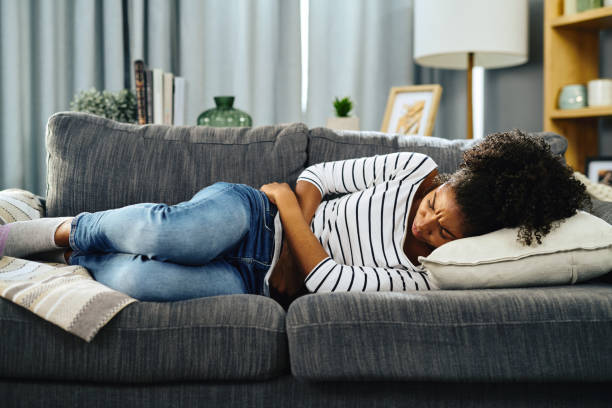
You walk by your teenage daughter’s room and notice her curled up on her bed, a grimace on her face. Ever since starting menstruation at age 11, she spends her period lying in bed, popping pain medication that does not work, and running through feminine products like hotcakes.
She even misses school on occasion because the pain and fear of a sudden leak are too great. Social life is in shambles, she is moody, anxious, and easily depressed more often than not, with what looks like another 30 years to go before it’s all over.
You feel helpless – you’ve done all you can think of for her. But your daughter’s “bad cramps” could be the symptom of something more than a heavy period.
Could it be Endometriosis?
Research shows three reasons you and your daughter shouldn’t ignore chronic severe period symptoms.
While endometriosis most commonly occurs in women aged 25 to 40, endometriosis symptoms can surface as early as age 15.
Your daughter is at higher risk of endometriosis if she started her menses early for her age – like age 11 or sooner.
Ignoring the problem prolongs suffering and could even cause the disease to grow worse. Research shows that women go more than a decade without a diagnosis for their period symptoms, with black women waiting even longer. Also, when finally diagnosed, Black women are more likely to face harsher outcomes than white women with surgical intervention.
Advocate for your daughter
How can you determine whether your teen is suffering from “bad periods” or endometriosis?
1. Listen. Carefully.
When describing period pain, people – other than women – tend to think we’re being dramatic. It’s common knowledge that doctors in times past believed that Black women could withstand lots of pain, if they felt pain at all. But, just as Black women’s pain should be taken seriously, so should your Black daughter’s pain. So, check in with your teen and listen to what she says. More than likely she is not being a dramatic teenager.
Also, listen to what your daughter doesn’t say. Is she extremely weak or listless during her period? Are you having to buy more feminine products more frequently? Is she missing days at school due to her period? If you notice these activities, it might be time to see a physician for a closer look at her menstruation cycle.
RELATED: Understanding Your Menstrual Cycle: Tracking & Cramps
2. Make sure she sees a PCP or GYN regularly.
Money and underinsurance woes keep many Black women from seeing a doctor regularly or when something is wrong. For this reason, women have suffered from severely painful periods for more than a decade before they are seen and diagnosed appropriately by a physician.
That is why it’s critical that you prioritize your teen’s physical and gynecological health. A gynecologist or primary care physician can

















